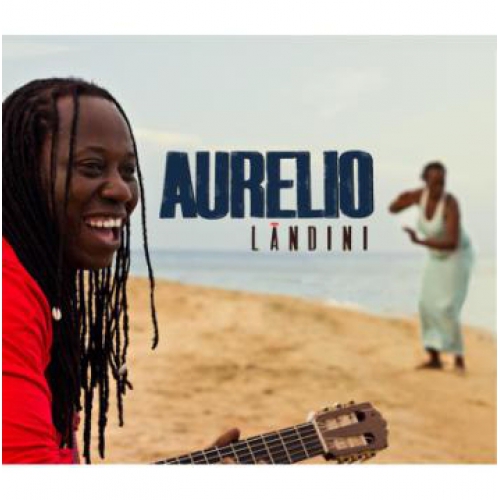The leading light of Garifuna music has come home to roost. After his adventurous 2011 release Laru Beya—for which he traveled to Senegal and recorded with West African musicians—Aurelio understood anew that his strength as a musician lay in his own roots. The Garifuna people descend from escaped African captives who interbred with Carib Indians on the island of St. Vincent for a century before being forcibly moved to the Central American coast by British colonials. On Honduran shores, young Aurelio used to listen to the fishermen coming home at sunset and lingering into the night to sing paranda songs by the sea. All this happened at the landing, the landini, the image that gives this album’s title its most literal meaning.
This set of 12 rootsy songs was recorded under the direction of Aurelio’s longtime producer Ivan Duran of Stonetree Records. Duran, who has produced a series of exemplary Garifuna releases, has mastered the sound—open and airy, deceptively simple, but graced with crisp percussion, layered vocals, and subtle tasty guitar sounds, from ambient slides to crunchy chops and melodious breaks. Voices are paramount, for these are first and foremost stories about love affairs, births, deaths and boats lost at sea. Duran notes that it is the collective sharing of an experience that gives a Garifuna song a long life in the community.
For non-Garifuna speakers, the pleasure has more to do with the searing vocal melodies and delicious grooves, whether the Latin swing and percussive push of the opener “Sananaru (I Can’t Handle Her),” the flamenco-tinged lament “Nafagua (I Will Try),” the cumbia lope of “Lirun Weyu (Sad Day),” or the sensuous clave of “Chichanbara (Ginger).” Aurelio, in fine voice throughout, has an uncanny knack for melding joy and sorrow with his vocal delivery. These are songs of hope and striving; you hear it in every note. And yet, even aside from the sometimes mournful subject matter in the songs, there is always the hovering sadness of an artist and a people truly fearful of losing their fragile culture.
There’s such vigor and character in these performances that it is hard to think of Garifuna culture as endangered. But it is: Few young people learn the language anymore, or the songs of their parents and grandparents. Aurelio, like Andy Palacio before him, is famous around the world and well loved among the worldwide Garifuna community. But such artists are hard pressed to resist the local, regional and global cultural forces that easily overshadow them in the minds of young citizens. It’s a paradox that animates Aurelio’s every soulful utterance and his musicians’ every stirring groove.
Landini is a splendid new entry in an important series of Garifuna recordings from Stonetree. If one day, the worst should come and Garifuna culture is reduced to a whisper and a memory, these records will attest to the fierceness, vitality and creativity with which Aurelio and his peers fought to save it.









